I was on a steady course of examining the secrets told by the face about the emotions, when I was diverted by a glancing blow. One commenter, carrying the moniker of "Anonymous," suggested that GOAB would not have wasted his time with such trivialities as the particularities of some disapproved French Law. I replied, "But he did. See his essay On the sumptuary laws."
To make sure I was right about that, I reread the essay. Now, of course, I want to write about the sumptuary laws. (Yes, ML, again, mimetic theory). (No, Raulito, I am not yet advising you bring these to Cuba; right now we are only exploring the idea). (Yes, Grasshopper, I will return to the task at hand soon, very soon).
Sumptuary Laws restrict certain types of people from buying certain kinds of things, like clothes or food.
In Ancient Rome Tyrian Purple dye is said to have been first restricted to victorious generals. Later even beardless child Emporers took up the habit, but it was not supposed to be worn by mere wealthy merchants.
The dye was expensive because it was made from the mucus of certain marine mollusks and thousands of the little creatures were smashed to make a gram of the stuff. A Phoenician is said to have figured it out when his dog was out cracking the shells and eating mariscos when the dog's mouth turned purple. The Phoenician Kings grabbed it as their royal symbol and kept the secret of how to make it as long as they could.
Once the Phoenician Kings had it, the Roman hot shots had coveted it as well. (Yes, again, ML). Part of the reason was to make sure the right people enjoyed their fair share of toadying. Because sycophants were much more readily available than mollusks, laws were needed to make sure the merely wealthy did not cut in on the action.
I have to think that an ulterior motive was to keep all the good Roman hard cash from being shipped to the Phoenicians for such a frivolous purpose.
The French had their own restrictions saying, according to GOAB, that none but princes, "shall eat turbot, or shall be allowed to wear velvet and gold braid." Turbot, it seems, is a flat fish related to a flounder. (Cap'n Bob, Cap'n Bill, this would be your arena).
Although GOAB did not mind having ways to distinguish between the classes, but he did not like these laws:
The way in which our laws try to regulate vain and insane expenditures for the table and for clothes seems to be opposed to their purpose. The real way would be to engender in men contempt for gold and silk, as vain and useless things; whereas we increase their honor and value, which is a very inept way to make men lose their taste for them.
GOAB saw it as a simple matter. Kings and princes could abandon these expenses and within a month everyone else would imitate them.
He suggested that the law should restrict these expenditures to "mountebanks and courtesans." GOAB was following the lead of a Greek lawyer named Zaleucus who drafted an ordinance saying that, a free woman may not be attended by more than one chambermaid unless she is drunk. Nor may she wear gold jewels about her person or an embroidered dress unless she is a public whore. And no man, unless he is a pimp, is allowed to wear a gold ring on his finger.
(If there are any Wesleyans out there, remember the similar theme by John Wesley: "I have one word more to say to parents; to mothers in particular. If, in spite of all the Apostle can say, you encourage your children by your example to "adorn" themselves "with gold, or pearls, or costly apparel," you and they must drop into the pit together." I'm not a Methodist, but if John Wesley feels this strongly about the issue, gold, pearls and costly apparel are off my shopping list). (Pardon me, Uncle Toby).
What if we brought a Zaleucus ordinance to our own conspicuous consumers? Only drug dealers, prostitutes and procurers will be allowed to purchase or drive expensive vehicles. Private yachts and jets are also restricted to drug dealers, prostitutes and procurers. At the airplane or yacht dealership (is there such a thing?) the purchaser would be required to sign a statement, "I affirm that I am a drug dealer, prostitute or procurer and will use this expensive means of transportation to entertain customers."
If you see a monster luxury Lexus SUV, it would be polite to tap on the window and say, "Excuse me kind sir, but I suffer from the vice of drug addiction. I see from your car, you are a dealer. Would I be able to purchase an eight ball, please?" Or, "Yes, kind lady, I see from your car that you are a prostitute. I only have $50, but do you suppose....?"
Not everyone would follow the law of course. There would be certain sheep in wolves clothing who would pretend to be drug dealers or prostitutes or procurers so they could drive the expensive car. Then the gossip would change when they dropped their kids off at elementary school. "Those phonies. Look at the car. He's not really a drug dealer, but secretly owns an automobile dealership. And she's not really a prostitute, but owns a boutique on the Island." That sort of thing.
I know my libertarian friends will argue this is a poor way to address the problem of "vain and insane expenditures." Raulito and I are open to other suggestions.
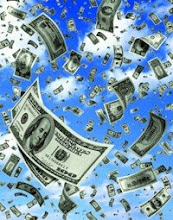















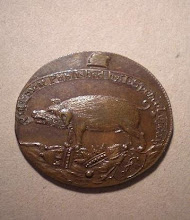









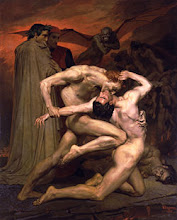_-_Dante_And_Virgil_In_Hell_(1850).jpg)















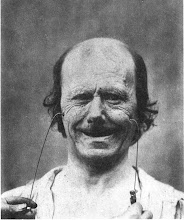
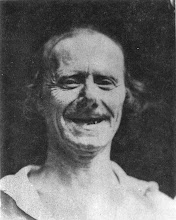


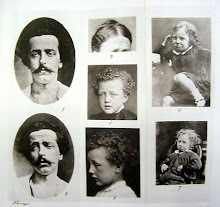





















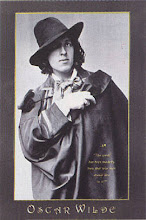
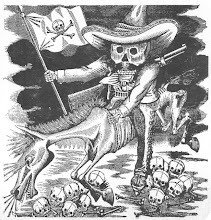












2 comments:
Vain and insane expenditures are a problem? Without them, I have nothing to gossip about.
Sr.
The Guteberg project has a fairly extensive list on file at:
http://www.gutenberg.org/browse/authors/m#a1230
Tab down to the M's.
Kurgan
Post a Comment